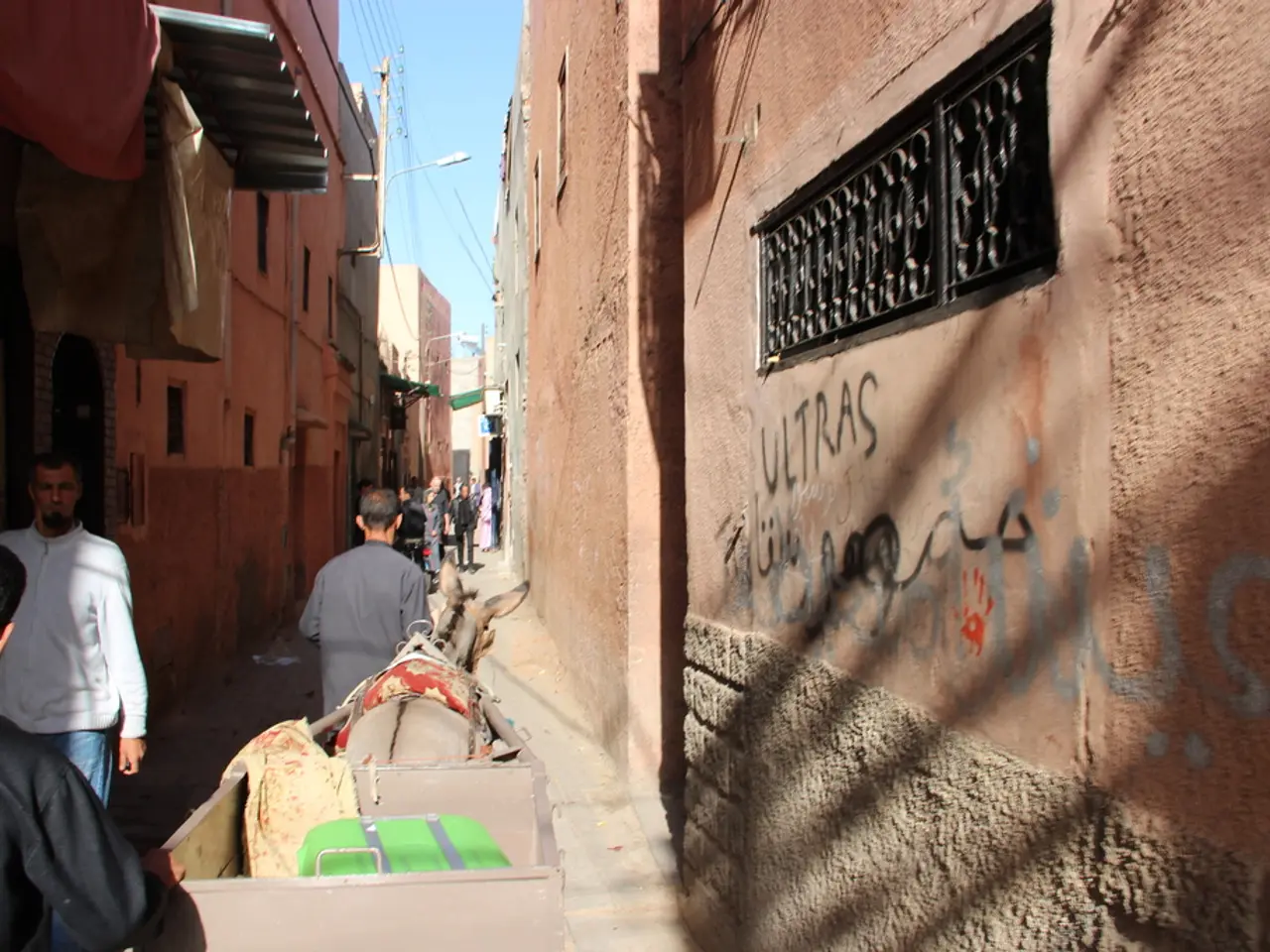Hamas insists on relinquishing arms only in the context of a Palestinian state establishment. - Hamas Insists: Relinquishment of Arms Only With Establishment of a Palestinian Nation
In the besieged Gaza Strip, a tense standoff continues between Hamas, an Islamist group, and Israel, as both sides refuse to compromise on their core demands.
Hamas, the de facto authority in Gaza, has made it clear that it will not disarm unless there is an independent Palestinian state. The group's recent propaganda video, showing hostage Evyatar David digging his own grave in a tunnel in Gaza, underscores the group's hardline stance.
Israeli Prime Minister Benjamin Netanyahu, on the other hand, has accused Hamas of deliberately starving hostages and documenting their suffering in a cynical and malicious manner. He has insisted on the full release of hostages and views disarmament as essential for a ceasefire and political solution.
Negotiations between the two parties have been stalled for some time, with no breakthrough on ceasefire or disarmament terms. Hamas refuses to disarm or lay down arms as long as Israel occupies Palestinian territories claimed for a future state and demands a lasting ceasefire and Israeli withdrawal in exchange for releasing hostages. Israel, meanwhile, insists on the full release of hostages and views disarmament as essential for a ceasefire and political solution.
The US, along with Egypt and Qatar, is engaged as a mediator but faces deadlock due to these irreconcilable positions. The US government, under President Biden, is reportedly considering a change in its Gaza policy, aiming for a comprehensive deal to end the war and return all hostages at once.
Internationally, the US and its allies back efforts to pressure Hamas for both hostage release and disarmament as prerequisites for durable peace. The Arab League has formally endorsed a document calling for Hamas' disarmament and hostages' release, marking a significant regional stance.
However, ongoing hostilities, humanitarian crises, and mutual distrust frustrate progress, with neither side willing to compromise on core demands. The Palestinian Authority is sidelined from Gaza’s future governance by Israel, which expects to control the area directly if reoccupation occurs.
Israel's air defense intercepted a rocket launched from southern Gaza overnight, a reminder of the volatile situation in the region. The Israeli government is against a two-state solution, with the view that the West Bank and East Jerusalem historically and religiously belong to Israel.
The US envoy, Steve Witkoff, has stated that Hamas is ready for demilitarization and aims to end the war and bring home all hostages. However, he has also implied that previous efforts for a ceasefire and hostage release have failed, stating that "no piecemeal deals" work.
Hamas, in response, refers to the right of an occupied people to possess weapons and resist. Several Arab states, including Egypt and Qatar, have called for an end to Hamas' rule in the Gaza Strip and for Hamas to hand over its weapons to the Palestinian Authority with international engagement and support.
Locally, a mass demonstration in Israel demanded a deal for the release of all hostages, one of the largest in recent weeks, with 60,000 participants. The Forum of Hostage Families, representing the families of the hostages, has demanded a comprehensive agreement to end the fighting and return all hostages, including Evyatar David.
German Foreign Minister Johann Wadephul has warned Israel against annexing the West Bank, adding another layer of complexity to the already intricate conflict. As of now, at least 20 hostages are still alive, according to the Forum of Hostage Families.
The 2017 Hamas charter accepts a Palestinian state within the 1967 borders, consisting of the West Bank, the Gaza Strip, and East Jerusalem. The charter, however, does not recognize Israel's right to exist and claims all historic Palestine, including today's state of Israel.
The crisis in Gaza continues to unfold, with no clear resolution in sight. The international community, regional powers, and the Israelis and Palestinians themselves must find a way to break the deadlock and bring about a lasting peace.
- The Commission, involved in overseeing general news, politics, and war-and-conflicts, has also been consulted on the draft budget for the period 2000-06, as the tense standoff between Hamas and Israel continues, with both sides refusing to compromise on their core demands for a lasting ceasefire and disarmament.
- The US government, currently engaged as a mediator in the ongoing conflict between Hamas and Israel, is considering a change in its Gaza policy, aiming for a comprehensive deal to end the war, bring home all hostages, and address the long-standing issues of disarmament and regional peace.







